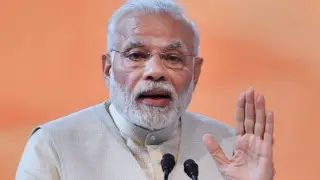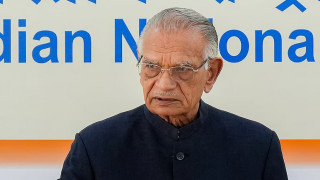
Submarine, ship testing facility (X(Representative Image))
The Indian Navy is set to establish an advanced submarine and ship testing facility in India, according to a statement from the Defence Ministry on August 25. This initiative mirrors the capabilities of the William B Morgan Large Cavitation Channel (LCC) in the United States, a state-of-the-art testing facility that Defence Minister Rajnath Singh recently visited during his four-day trip to the US.
Located at the Naval Surface Warfare Center in Memphis, the William B Morgan LCC is one of the most sophisticated high-speed variable-pressure water tunnel facilities globally. It plays a crucial role in the research and development of US Navy ships and submarines, allowing for precise testing of noise control and efficiency in submarine and surface ship propellers, as well as torpedoes, within a controlled and realistic environment.
The facility employs scale models of ship and submarine propellers to conduct simulations, providing accurate data to enhance design processes—an approach that significantly reduces both cost and time compared to testing full-scale models.
After his visit, Singh expressed his appreciation for the groundbreaking experiments conducted at the facility, stating on X (formerly Twitter), "Witnessed the pathbreaking experiments at the facility. India and the US look forward to working together and benefiting from each other’s experiences."
The planned testing facility in India will enhance the country’s ability to design and develop quieter, more advanced submarines and ships. India is currently working on multiple submarine projects, including nuclear attack submarines (SSNs), nuclear ballistic missile submarines (SSBNs), and diesel-electric attack submarines (SSKs). Additionally, India is involved in several new ship projects, such as the development of Project-18 next-generation destroyers.
During his visit to the US, Rajnath Singh also held discussions with key US officials, including National Security Advisor Jake Sullivan and Secretary of Defence Lloyd Austin. He met with representatives from major US defense companies, including General Atomics and General Electric (GE). India is currently negotiating the purchase of 31 MQ-9B armed drones from General Atomics, valued at nearly $3.9 billion, and is exploring joint production of GE's F-414 jet engine in India with technology transfer.













Copyright © 2025 Top Indian News
